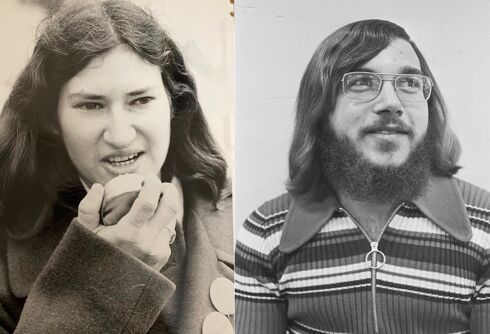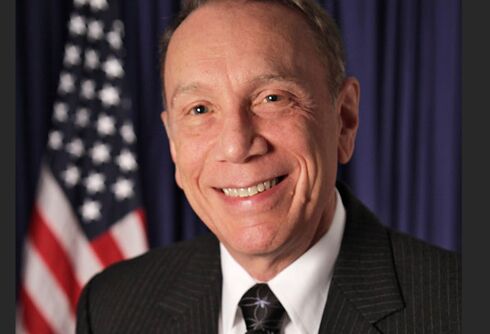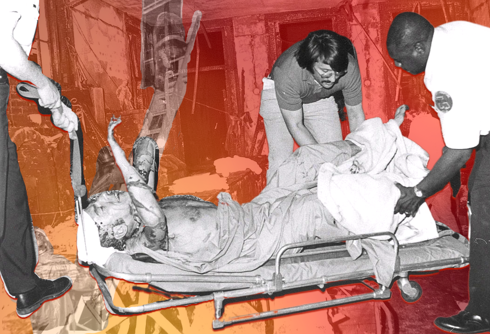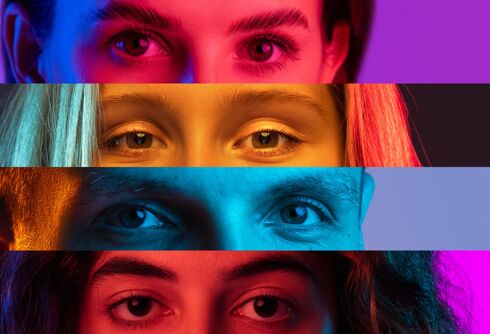The road to equality is paved with court victories and legislative gains, but also by progress in the social theatre of the culture war. This is the latest iteration of the struggle to contend with intolerance through outreach, community building, and education — needs for which cultural institutions are apposite.
Friday, which marked the fourth day of Gay History Month, editorials are circulating in conservative media outlets that caution parents about the “sexual assault on our children” posed by public schools’ recognition of LGBT history.

In this July 4, 1967 photo, demonstrators call for protection of gays from discrimination as they march in front of Independence Hall in Philadelphia.
This largely stems from a statement by Mat Staver, Founder of Liberty Counsel, which pointed to the inclusion of Araujo’s story in curricula as evidence that organizers want to teach students about “sex and murder.”
A verdict of second-degree murder was reached for defendants in the 2002 trial surrounding the brutal killing of Gwen Araujo, a pre-operative transgender teen who was beaten and strangled by four men at a party in Newark, California.
Never Miss a Beat
Subscribe to our newsletter to stay ahead of the latest LGBTQ+ political news and insights.
The case, which evokes memory of the Matthew Shepard murder, is a study in the application of hate crime legislation and the infamous gay (or transgender) panic defense.
Sharing Gwen Araujo’s story and remembering her legacy will help to guard against violence directed at LGBT people.
The National LGBT Museum is a testament to the community’s history and culture, building a more tolerant future by learning from and protecting our past.
The purpose of LGBT History Month (as it was subsequently renamed) is also a function of the National LGBT Museum: To legitimize the cultural heritage, progress, and evolution of the community; to celebrate the contributions of LGBT figures; to promote diversity and inclusion; and to prevent discrimination by delineating the means by which our community and others were (and are) thus afflicted.
The National LGBT Museum is the very first institution that will bring our community’s diverse historical narratives and cultural identities to a national stage before a national audience.
Stories of iconic LGBT figures such as Bayard Rustin and Greg Louganis are represented in the 5,000 artifacts that have been collected by the Museum so far—stories that also document a more complete picture of American history than is often presented in our schools and mainstream museums.
The National LGBT Museum is close to finding its home in Washington, D.C., an international city that welcomes visitors from around the world, and boasts some of the most highly esteemed museums in the country.
The Museum performs a dualistic function that sets it apart from other cultural institutions. It serves a diverse community by means of interactive exhibits, and safeguards the artifacts—and thereby also the history—of the LGBT community.
Article continues below
Resources are still allocated to championing such legislation as the Employee Non Discrimination Act (ENDA), which involves lobbying elected representatives and other behind-the-scenes work in which advocacy organizations are engaged.
But while there is still work to be done and accomplishments to be checked off on Capitol Hill and in our courts, cultural institutions dedicated to sharing the history of the LGBT community are an exciting and largely untapped resource that can address needs that are unmet by political organizations.














